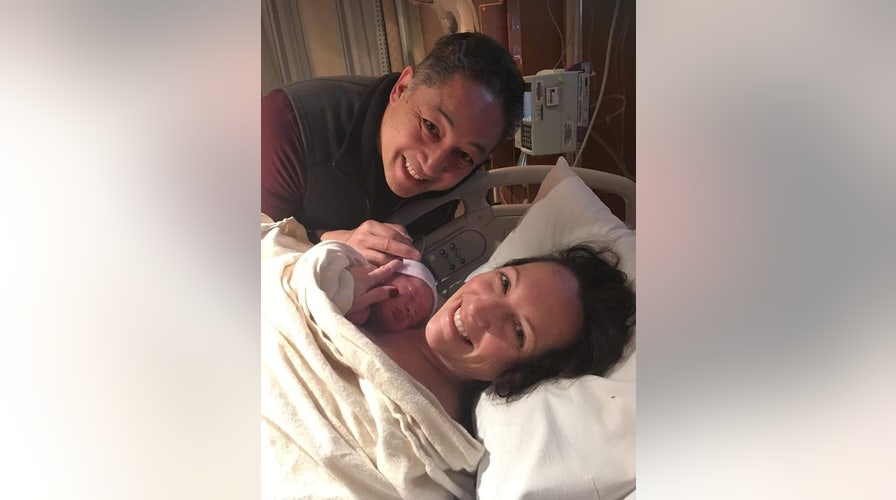Fox News Flash top headlines for September 3
Fox News Flash top headlines for September 3 are here. Check out what's clicking on Foxnews.com
A Colorado couple welcomed their son this spring three years after he was part of a batch of remaining embryos donated by another couple who had decided their family was complete.
“It feels a little like Alex was waiting for us, frozen for three years,” Michele To, of Arvada, told SWNS of her infant son. “It’s kind of neat.”
Alex joins an older brother, Lathan, who was also conceived via in vitro fertilization in June 2013, but was the only viable embryo the Tos had. When it came time to give him a sibling, after a failed round of IVF using their own eggs and sperm, they considered traditional adoption but then saw an advertisement for a process called “embryo adoption.”

Bobby and Michele To are pictured with their son Alex, who was born in March nearly three years after his biological parents had stored their embryos. (SWNS)
“When couples have extra embryos when their family is complete they have a decision to make,” Michelle To told SWNS. “They can donate the embryos to other couples, they can donate them to science or they can destroy them.”
While the process is referred to as “embryo adoption,” it legally does not qualify as such. The term adoption in the U.S. applies only to the placement of a child after they are born.
In 2017, the Centers for Disease Control and Prevention (CDC) reported there were an estimated 284,385 assistive reproductive technology (ART) cycles attempted in the U.S., resulting in 78,052 live-born infants. The CDC said the main type of ART reported in the U.S. is IVF, with an estimated 1.7 percent of all children born in the U.S. each year being conceived through ART.
CALIFORNIA COUPLE WHOSE SON WAS BORN TO WRONG PARENTS IN IVF-MIX UP SUE CLINIC
However, the process of IVF can result in unused embryos, which are then stored for potential later use. For couples like the Tos, the option to choose an embryo based on genetics while also getting to experience pregnancy is appealing. The Tos chose to have their frozen embryo transfer at the National Embryo Donation Center in March 2018, and while the first attempt failed, the second round in July resulted in a healthy pregnancy.

Alex, who joins big brother Lathan, will always know about his birth story, his parents said. (SWNS)
“I got to experience the bond that comes with nursing and I got to carry Alex inside me for nine months and that was very special,” Michele To told SWNS.
The Tos said they plan to be open and honest with their son about his family history, and that they are in communication with his genetic family via email.
CLICK HERE TO GET THE FOX NEWS APP
The Tos also said they are hopeful about expanding their family again through embryo adoption and would choose an embryo genetically related to Alex.










































